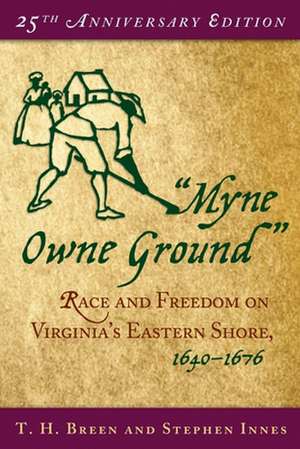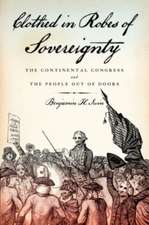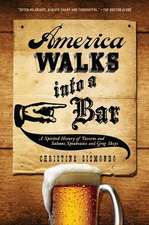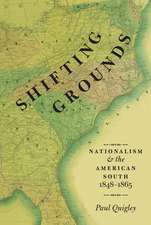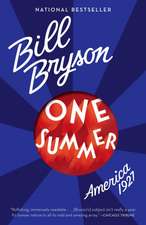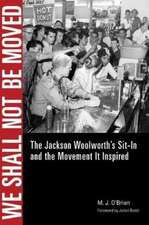"Myne Owne Ground": Race and Freedom on Virginia's Eastern Shore, 1640-1676
Autor T. H. Breen, Stephen Innesen Limba Engleză Paperback – 17 aug 2005
During the earliest decades of Virginia history, some men and women who arrived in the New World as slaves achieved freedom and formed a stable community on the Eastern shore. Holding their own with white neighbors for much of the 17th century, these free blacks purchased freedom for family members, amassed property, established plantations, and acquired laborers. T.H. Breen and Stephen Innes reconstruct a community in which ownership of property was as significant as skin color in structuring social relations. Why this model of social interaction in race relations did not survive makes this a critical and urgent work of history.
In a new foreword, Breen and Innes reflect on the origins of this book, setting it into the context of Atlantic and particularly African history.
Preț: 450.16 lei
Nou
Puncte Express: 675
Preț estimativ în valută:
86.15€ • 89.61$ • 71.12£
86.15€ • 89.61$ • 71.12£
Carte disponibilă
Livrare economică 24 martie-07 aprilie
Preluare comenzi: 021 569.72.76
Specificații
ISBN-13: 9780195175370
ISBN-10: 0195175379
Pagini: 176
Ilustrații: 1 map
Dimensiuni: 141 x 210 x 13 mm
Greutate: 0.23 kg
Ediția:Anniversary
Editura: Oxford University Press
Colecția OUP USA
Locul publicării:New York, United States
ISBN-10: 0195175379
Pagini: 176
Ilustrații: 1 map
Dimensiuni: 141 x 210 x 13 mm
Greutate: 0.23 kg
Ediția:Anniversary
Editura: Oxford University Press
Colecția OUP USA
Locul publicării:New York, United States
Descriere
Ever since its publication twenty-five years ago, "Myne Owne Ground" has challenged readers to rethink much of what is taken for granted about American race relations. During the earliest decades of Virginia history, some men and women who arrived in the New World as slaves achieved freedom and formed a stable community on the Eastern shore. Holding their own with white neighbors for much of the 17th century, these free blacks purchased freedom for family members, amassed property, established plantations, and acquired laborers. T.H. Breen and Stephen Innes reconstruct a community in which ownership of property was as significant as skin color in structuringsocial relations. Why this model of social interaction in race relations did not survive makes this a critical and urgent work of history. In a new foreword, Breen and Innes reflect on the origins of this book, setting it into the context of Atlantic and particularly African history.
Recenzii
This fascinating account proves that for a couple of generations in seventeenth-century Virginia the two races lived fairly comfortably side by side....It is an extraordinary and convincing story.
[Breen and Innes] have pieced together sufficient details relating to the lives of some of these blacks to establish firstly that skin colour was not originally an absolute impediment to social advancement, and secondly that the white immigrant population on Virginia's eastern shore were not averse to accepting as social equals blacks who had recently purchased their freedom from slavery.
A thorough exploitation of available sources coupled with a sophisticated understanding of the difficult issues confronting those trying to unravel the complexities of early American race relations....[Breen and Innes] have reminded us of forgotten alternatives in this society's racial odyssey.
[Breen and Innes] have pieced together sufficient details relating to the lives of some of these blacks to establish firstly that skin colour was not originally an absolute impediment to social advancement, and secondly that the white immigrant population on Virginia's eastern shore were not averse to accepting as social equals blacks who had recently purchased their freedom from slavery.
A thorough exploitation of available sources coupled with a sophisticated understanding of the difficult issues confronting those trying to unravel the complexities of early American race relations....[Breen and Innes] have reminded us of forgotten alternatives in this society's racial odyssey.
